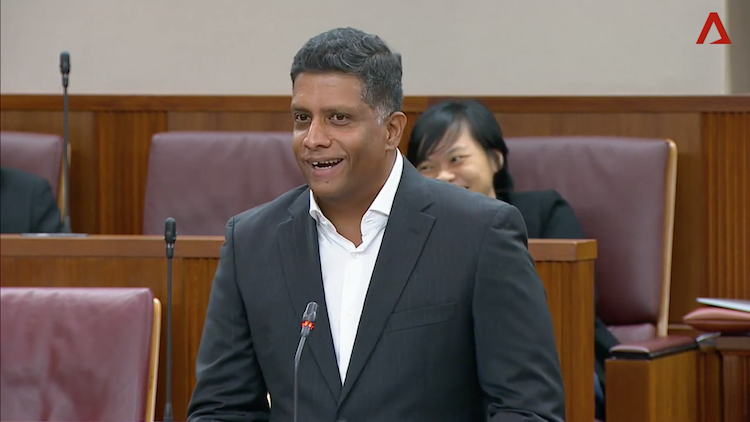
A screengrab from a ChannelNewsAsia video of NMP Ganesh Rajaram speaking in Parliament on Wednesday, July 11, 2018.
[Editor’s Note: The following speech was delivered by Ganesh Rajaram, a Nominated Member of Parliament (NMP), during a sitting of Parliament on July 11, 2018.]
Mr Speaker, Sir, I thank you for allowing me to speak on the motion.
When my colleague and fellow NMP Associate Professor Mahdev Mohan mooted the idea of a motion that recognised and endorses the love of learning as a foundation for our future, and that education should be inclusive, accessible, and a life-long experience for everyone in Singapore, it was a no-brainer for me to endorse and support this meaningful motion.
Sir, as I’ve recounted several times in this House, education has played a key role, as an enabler, and is the main reason why I and many other Singaporeans have been able to progress and succeed in life.
I would also like to preface my speech by saying that the education system in Singapore is a world-class system, that has done well for our country and continues to be a key part of success for those who have less.
However, like any system, now and again, there may be a need to take a step back, every once in a while, to see if there might be tweaks and adjustments that would ensure that a strong system becomes even stronger over time, to keep up with evolving needs and demands.
In Singapore, growing affluence and rising aspirations are a few among many factors that point to a need for an even more calibrated approach to education. Some may argue that Singapore is doing fine. It is precisely why when we are doing so well, that we should take this opportunity to whole-heartedly support things that are working well, for Singapore, and perhaps consider slight tweaks to areas which are not functioning at their full potential.
In my speech today, I’ll be focusing on two main areas: sports education in Singapore, and the bigger role that parents can play in nurturing the talents of their children. Much of it will be based on anecdotes from my experience as a father of a child who has gone through sports education in a local primary school, as well as from the many conversations that I’ve had with parents and children in the current primary and secondary school local system.
Like many in this House, my wife and I enrolled our son in the local primary school system. It’s a system that is robust, well thought through, and works. While many parents focus predominantly on a school’s academic success, accessibility to alumni membership, or perhaps proximity to home, when my wife and I were looking for a primary school for our son, we also looked at the breadth of sports offered by the school.
You see, Sir, as I’ve shared before in this House, sports is not just about fitness, wellness, and competition, more importantly, and members in this House who have played sports will agree with me here, sports is about learning trades such as teamwork, fair play, and values such as respect, resilience, and graciousness.
Through sport, children learn sportsmanship and other life skills. They develop a sense of fellowship with one’s competitiveness that is not selfish or self-centred. Sports will also enable our children to build relationships with people across all sectors, with many lasting a lifetime.
On the football pitch, when you’re playing as a team, it matters not whether you live in a one-room rental flat or a good-class bungalow, or whether you’re the top student or the worst student in class, what matters most is that you’re working together, having each other’s back, in a bid to score against the opposing team. It is perhaps one of the best social-leveller platforms around.
So when it was time to sign up my son for a sport, it was a new experience for me. Back in the day, when I wanted to play sport, I just turned up when the teachers asked me to, and that was it – we played.
Today, it’s a pretty complicated exercise to play in the sport of your choice. Most schools now have an online registration system for CCAs that opens for a specific window, during which parents must go online to register their child for the CCA of their choice. And it’s not a given that your child will get to play the sport or CCA that you’ve selected for your child, as there are limited spaces. So it’s a first come, first serve basis. This is also incredibly tough for parents who don’t have immediate access to the internet during that specific window – I’m speaking from experience.
I’ve always been puzzled by the thinking behind this – if you are a child in a primary school, and love a sport and want to play it, you should be encourage to pursue your passion instead of being told that there are not enough places in the CCA and sent off to a sport or CCA that you have absolutely no interest in.
As I understand it, part of the reason for this is that schools now farm out some of their CCAs to external vendors, who cannot cope with the large numbers of students keen on popular sports, or are not paid to do so. Often, we hear about schools that decide against offering sports options that they do not excel in. I know of one particular school that stopped offering a sport after repeatedly finishing second and third in the National Schools competition.
Parents and children are also told that there are too few children interested in that particular sport, so it doesn’t make sense to offer that CCA. The end result is, that even if it is a fairly popular sport like football or tennis, some schools tend not to offer the sport as a CCA.
Parents are then told, ‘Don’t worry, you can engage your own coach, and enlist your child in a program to participate in the sport he or she enjoys, and we as the school will recognise it as an official CCA.’ What this means is that the more affluent parents will engage private coaches for their children, and the children from less affluent families make do with playing an alternative sport, which they may not like or have any interest in.
It also means that parents have a very big say in the running of the CCA, and sometimes this can lead to conflicts of interests in regards to team selection and performance.
Perhaps a solution would be for schools in a particular zone or area to come together and decide collectively, to offer sports that they may not be able to offer on their own. Schools pooling resources could also alleviate cost concerns, as when CCAs are farmed out to vendors, it usually means that parents have to top up the fees. The shared fees would reduce the burden for less affluent families.
Sir, another suggestion that I’d like to make is for all schools to have a common basic sports curriculum to introduce popular sports to all children. If a child does not know what sport he or she wants to participate in, the introduction to a comprehensive sports program, perhaps during physical education, PE, will allow the child to familiarize himself or herself with different types of sport and identify ones which he or she enjoys and would want to pursue.
This would also give children a broader understanding of sport in general, be it rugby, football, swimming, table tennis, badminton, hockey, or whatever the sport may be. Understand that some schools introduce one or two sports during PE, but this is not comprehensive and nor is it standard across all schools.
The government could also take the lead in creating public spaces where kids can play sport without the hassle of booking fields and courts, many of which require some kind of online registration and payment, which children might not have access to. We’ve done an amazing job with our park connectors, surely we can do just as an amazing job at creating open-air spaces in neighbourhoods where any child can play a sport of his or her choice, without fear of reproach. Meaning, being chased away or reprimanded, as I was decades ago when I was honing my skills in HDB void decks.
So I call for greater scrutiny of external vendors appointed to run CCA programs for schools. For those running sports CCAs, many are former national and club sportsmen who may have robust credentials as sportsmen, but have little or no qualification or experience in coaching, or more importantly, educating children.
I’ve seen this first-hand, where fundamentals like proper warm-up or warm-down techniques, drills and explanations about sportsmanship, and respect, are not part of the CCA’s curriculum. What you often find instead, is a strong emphasis on winning, which in itself is not a bad thing.
But sports education in school should be more than just about winning. There are vendors who blatantly tell parents: ‘Your child needs more coaching, I’m happy to coach him outside of the CCA hours and these are my rates.’ And lo and behold, the kids who go for these private extra coaching end up in the first team representing the school.
Again, this encourages elitism, where the affluent parents will be able to get their kids on the school team because they can afford the additional coaching. There are also vendors who are harassed by parents on the side-lines – parents who yell instructions and abuse during tournaments, and pressure the coaches to play their children. Again, this is not what playing sports is about.
Worse still, children who have parents who work lose out because their mothers or fathers are not at the training or competition grounds to lobby on behalf of their children. This is behaviour that is fundamentally wrong.
Sir, I urge the Ministry to take a closer look at how schools organise their PE curriculum and CCAs, and how external vendors are appointed. For sports CCAs, what are the credentials of these vendors, and how are they assessed? It cannot just be about winning tournaments.
Perhaps, Sports Singapore, the Singapore Sports Institute, and the Singapore Sports School can lend their expertise to help schools craft the PE and sports CCA curriculum so that every child can enjoy and reap the benefits of sport. Teachers managing sports CCAs, as well as vendors, could also be better trained to nurture children who play sport, which could include advice on nutrition and physical and mental wellness.
Sir, what I am sharing is probably not new to many in this House, or to any parent with school-going children. But I raise this now, in light of this motion, to strongly urge the House that if we are serious about encouraging children to pursue their passions, that education continues to be the pathway to success for those who have less, then perhaps it is time that we pay more attention to sports education.
Sports in our schools should be a meeting place for friendship, fellowship, and the pure enjoyment of sport, regardless of your family and financial background. It is one of the few places in a child’s schooling life where he or she is not judged by their academic prowess, and we should do all we can to return to this spirit.
Sir, I’d now like to turn my attention to the second point, about the Direct Schools Admission (DSA) program. When conceived and introduced in 2004, the program was to enable Primary 6 and Secondary 4 students who are exceptionally talented, not just in academics, but also CCAs and sports included, to be guaranteed places in secondary schools and junior colleges with tests and trials.
While the scheme has worked, and Minister Ng Chee Meng has announced that a review is being undertaken to address how different schools select students, here are some observations about the scheme that merit further scrutiny:
One unintended consequence of the scheme of the emergence is the emergence of DSA coaches. These are sports coaches who have, over the years, studied the DSA entrance requirements of schools and created programmes that aim to guarantee your child a place in the school of choice, if you enrol your child in their classes over a period of time.
Some of them are so good at what they do, they make a promise that they will refund the fees if your child does not make it to the school of your choice through the DSA program.
Sir, all parents want the best for their children, so parents who can afford the fees would enrol their kids in these programs.
But what do these coaches actually teach? A friend whose child attended one of these classes talked about how the coach instructed the child to not pass the ball to his teammates during the trials, when the coaches from the DSA school were observing him. This is to ensure that the child would outshine his teammates, and secure that precious DSA place in the school.
Another child, who had no interest in any sport, was enrolled by his parents into a shooting class, that guaranteed success in the DSA trials, and a place in a top school. Yes, the boy got into the school through DSA, but is now miserable as he doesn’t enjoy the sport, and only enrolled and played in it to get into the top school.
We need to ask ourselves if this is what the DSA scheme is intended to be, and if this gaming of the system is acceptable. Is this what sports is about? Do we want to encourage such behaviour, and worse, reward it, by giving these children places in our top schools?
What we need is for the system to also recognise and reward children who exemplify good sportsmanship and character, as these are qualities that will stay with them beyond their school sporting careers.
Just look at Japan, at this year’s FIFA World Cup in Russia. They were a hair’s breadth away from beating Belgium, and qualifying for the quarter-finals, but the world now remembers them more for their behaviour off the field, for their fair play, and how they left their dressing room spotless, and penned a note of thanks in Russian to their hosts.
Perhaps the Ministry can work on tweaking the DSA trials to include criteria such as sportsmanship, fair play, and traits and values exhibited like Sean See, from St. Andrew’s Secondary School.
Sean, the school’s hockey captain, captured our hearts earlier this year, when he asked the umpire not to allow a goal that his team had scored when their opponent was not ready, as he felt it would not have been fair for the other team. This resulted in his team eventually losing the match.
To me, values such as integrity and fair play are as important, if not more, than one’s ability as an athlete. By including these other criteria in the DSA selection process, the Ministry would send a strong signal to the teachers, coaches, parents and children about the kind of young Singapore it hopes to nurture. And, it will also create a more level playing field, as these values cannot be paid for.
Mr Speaker, Sir, the other main role in education belongs to us, the parents. Fundamentally, it’s up to parents who should know and understand our children best, to make the best decision with them, and not for them.
Let me share a personal experience which I think has helped me become a better father.
I think most people in this House know that I love sport, I played it at all levels, and I’m a true football nut. So when my son came along, all I dreamed of was to see him have the same passion for sports as I did, and football in particular.
So when he was about 4 or 5, I enrolled him in a football academy, as I had wanted him to have a very good foundation. But after a few weeks of watching him from the side-lines, I noticed that while he seemed happy enough, instead of going after the ball and passing it, all he seemed to do was chase after the other children, much like he was playing a game of catching.
So on the way home from training one day, I decided to have a heart-to-heart with him. “Do you actually enjoy football?” I asked. “Yes Daddy, very much,” he said, smiling. Then I pressed, “But why do you just chase the kids around?” The smile on his face turned into a frown, and almost bursting into tears, he said, “Actually Daddy, I don’t like football at all.” So I said, “Why didn’t you say anything? You know, you don’t have to play the sport if you don’t like it.” And his response broke my heart – “Because you love football, Daddy.”
That’s when I realised that as a father, I just assumed that my child would love what I loved, and would want to be just like me, but I had never bothered to ask him what he liked.
So for the next few years, we encouraged him to play whatever sport or activity he wanted. He tried everything, from aikido to swimming to table tennis to golf. And finally after a few years later, on his own, he began to develop a love for football – thank God – and is today an accomplished footballer, having played competitive football for school and club. It’s a sport he genuinely loves, for all the right reasons.
As parents, it’s natural to want our children to be just like us and have the same interests as us. As a parent, it’s also easy to fall into the trap of seeing other parents and other children succeeding and excelling at different sports and thinking to ourselves: our boy or girl could also do that. I know of parents who have pushed their children so hard, that their children end up resenting not just the sport, but their parents as well.
I’m reminded of an interview I read in the Financial Times about a month ago. It was an interview with Andria Zafirakou, who was recently crowned The Best Teacher in the World 2018, Winner of the Global Teacher Prize. She says, and I quote, “Every child is different. Some children will really benefit from military lining-up and find it comforting, but then some children won’t be able to adapt to those environments and that will cause mental health issues.”
The point here is that, as parents we need to understand our children better, to listen more and to listen effectively. And as far as sport education is concerned, we would have succeeded when sport elicits unbridled joy in every child that we see when the school bell rings to announce it’s time for recess.
Thank you, Mr Speaker, Sir, I stand in support of the motion.

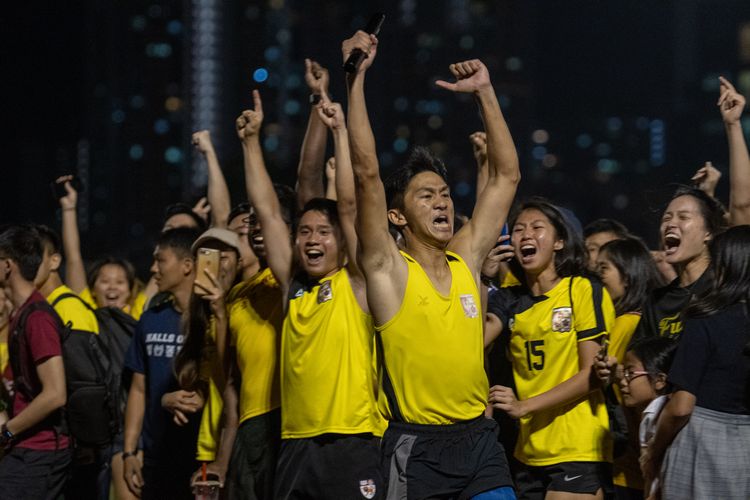
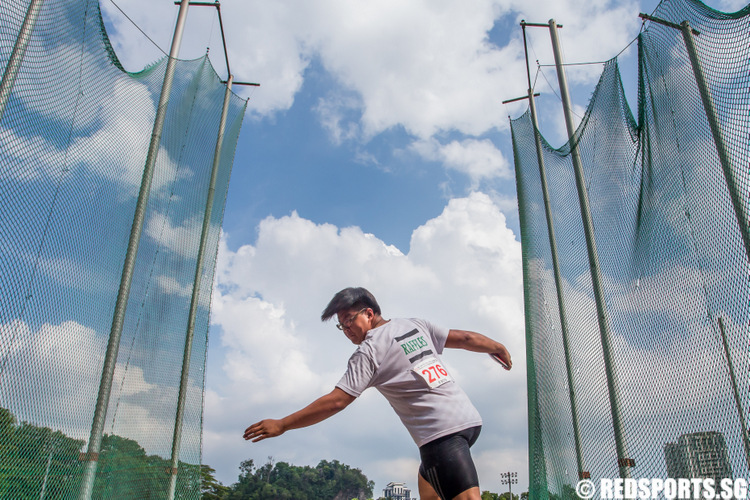
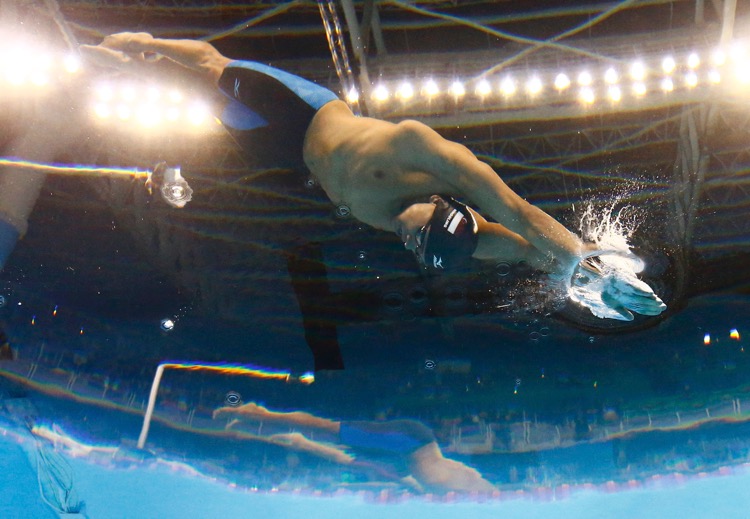

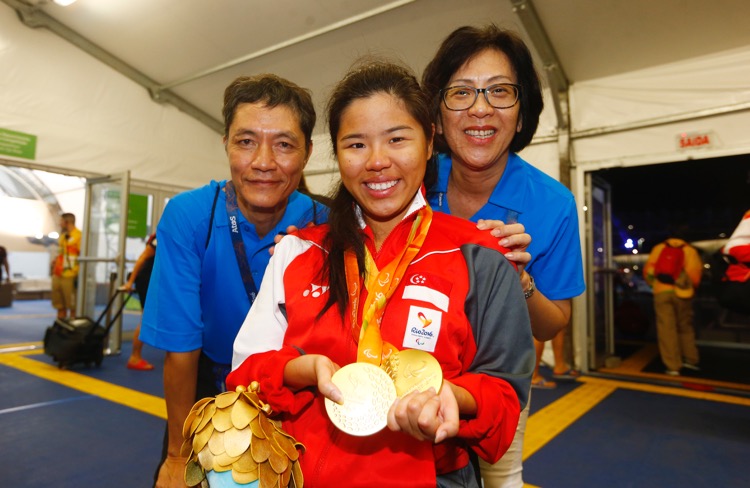

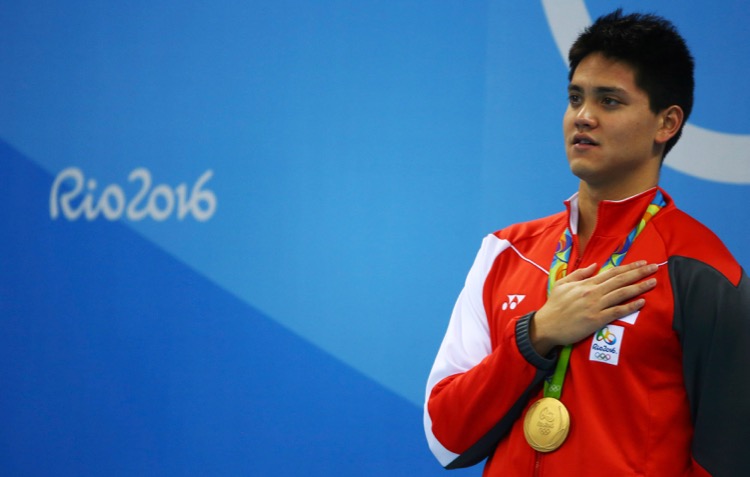

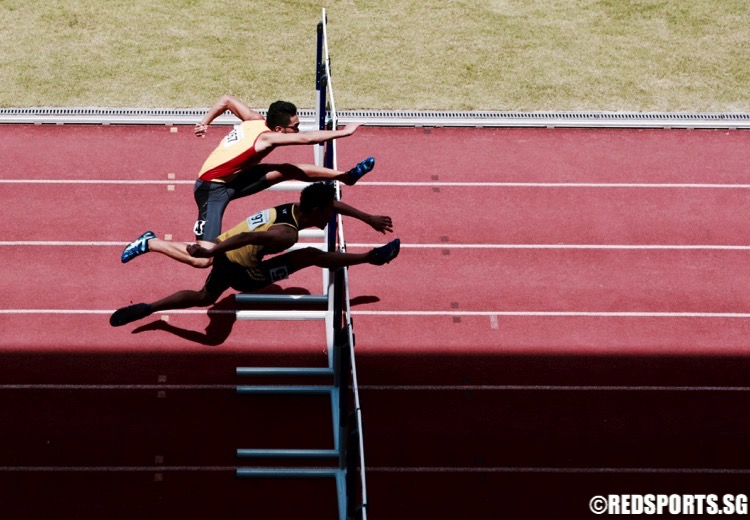
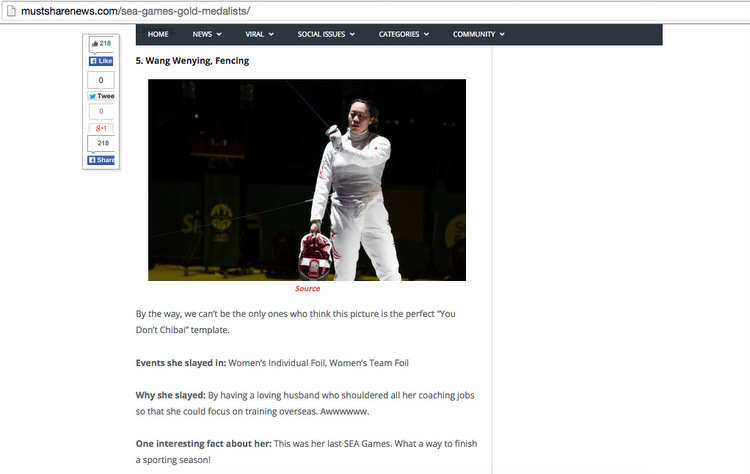
I agree with him on the part about the coaches soliciting business from the parents outside of school, especially for badminton.
[…] article resonated on many […]